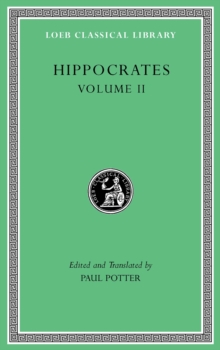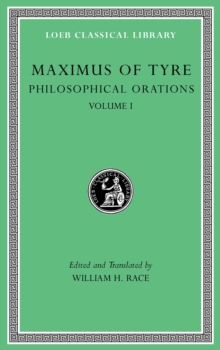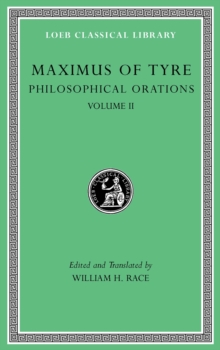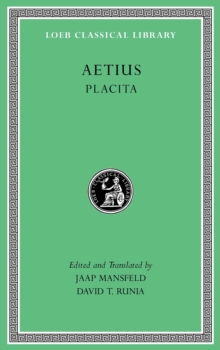
Samia. Sikyonioi. Synaristosai. Phasma. Unidentified Fragments Hardback
by Menander
Part of the Loeb Classical Library series
Hardback
Description
The master of New Comedy. Menander (?344/3–292/1 BC) of Athens, the leading playwright of the New Comedy, wrote more than 100 plays.
Many of his comedies were adapted by Roman dramatists.
By the middle ages, however, his works were lost. Then, at the end of the nineteenth century, papyrus texts, preserved from antiquity by the dry heat of Egypt, began to be discovered.
These have yielded so far one play virtually complete (Dyskolos), large continuous portions of four more (Aspis, Epitrepontes, Perikeiromene, Samia), and sizable chunks of many others.
Menander remains a paradox: artificial plots based on unlikely but conventional coincidences, enlivened by individualized characters, realistic situations, and at times deeply moving dialogue. Volume I of Geoffrey Arnott’s three-volume edition of Menander contains six plays, including Dyskolos (The Peevish Fellow), which won first prize in Athens in 317 BC, and Dis Exapaton (Twice a Swindler), the original of Plautus’ Two Bacchises.
Ten plays are in Volume II, among them the recently published fragments of Misoumenos (The Man She Hated), which sympathetically presents the flawed relationship of a soldier and a captive girl; and the surviving half of Perikeiromene (The Girl with Her Hair Cut Short), a comedy of mistaken identity and lovers’ quarrel.
Volume III begins with Samia (The Woman from Samos), which has come down to us nearly complete.
Here too are the very substantial extant portions of Sikyonioi (The Sicyonians) and Phasma (The Apparition), as well as Synaristosai (Women Lunching Together), on which Plautus’ Cistellaria was based.
Information
-
Out of stock
- Format:Hardback
- Pages:656 pages, none
- Publisher:Harvard University Press
- Publication Date:15/09/2000
- Category:
- ISBN:9780674995840
Information
-
Out of stock
- Format:Hardback
- Pages:656 pages, none
- Publisher:Harvard University Press
- Publication Date:15/09/2000
- Category:
- ISBN:9780674995840










